Review for The Hourglass Sanatorium (Restored Edition)
‘The Hourglass Sanatorium’ is one of the most impressive films I’ve ever seen. Not only is it visually stunning, it’s one of only a handful of films I’ve seen that, to me at least, accurately reflect the atmosphere of dreams. There’s no running in slow motion across misty graveyards here; just a series of strange, disconcerting and disjointed moments that together create a perfect dreamscape, albeit a dark one. In common with David Lynch’s ‘Eraserhead’, the grossly under-rated Brad Pitt vehicle, ‘Johnny Suede’, Buñuel’s ‘L’Age Dor’ (and others in his canon), Wells adaptation of Kafka’s ‘The Trial’ and Haneke’s adaptation of ‘The Castle’ and some of Bergman’s work, this is one of the very best dream-state films I’ve ever seen.
Made in 1973, The Hourglass Sanatorium (Polish: Sanatorium pod klepsydrą) (aka ‘The Sandglass’) is an adaptation of a collection of stories by Bruno Schulz's called ‘Sanatorium Under the Sign of the Hourglass’ and it recounts the tale of a man who visits his aging father in a sanatorium outside of normal time.
Joseph (Jan Nowicki) travels through a dream-like world, taking a dilapidated train, seemingly full of cobwebbed corpses and a blind conductor, to visit his dying father, Jacob, in a sanatorium. When he arrives he discovers what appears to be a dilapidated and all but abandoned old building. He sees a nurse coming out of a dormitory doing up her unbuttoned gown, swiftly followed by a Doctor. Nothing is quite what it seems and time itself appears to flux in and out of the past.
Whilst clearly an adult, the way others react to him shows that they ee him as a child. He makes friends with a bespectacled young boy, Rudolf, who avidly collects stamps from around the world. These stamps trigger strange memories and associations which show Joseph going from sexually charged scenes where he relives his voyeuristic youth, to strange encounters with other visitors under beds to worlds populated by soldiers at war or singing priests.
There are also clear reflections on the horrors of the holocaust and a strong Jewish, mystical presence throughout. Despite its two hour length, the film winds its way through a continuously disjointed narrative that is both wondrous and farcical, and despite its leisurely pace, there’s never a dull moment.
Apparently Wojciech worked on the project for five years and it shows. Banned in communist Poland at the time of its release (1973) for its positive portrayal of Jews at a time when anti-Semitic sentiment was high as well as its portrayal of the hospital as run-down and archaic, it was smuggled to Cannes in film cans with false inscriptions and shown there to huge praise, winning the Jury Prize at the Cannes Film Festival that year. As a result of this misdemeanour, he wasn’t able to make another film for the next 8 years.
The film is visually stunning. The sets, both internal and external, whilst often decaying and crumbling, look spectacular. There are hundreds of extras in the film, all dressed in amazing period costume. The direction, camerawork and lighting are superb with some amazing crane and dolly shots that are technically brilliant.
The film looks spectacular on Blu-Ray with a full frame-by-frame restoration. It sounds great too with a fully re-mastered soundtrack, funded by the Polish Arts council.
There is no doubting the brilliance of the film, a psychedelic masterpiece that will delight fans of surreal cinema, and this Mr. Bongo release is absolutely top notch with an utterly flawless transfer.
Indeed, had there been any additional features on the set I would have given this release a highly exalted 10/10 which, in over 500 reviews, I have only given to a half-dozen titles. As there are no extra features I’ve only awarded it 9/10.
The bottom line is, if you enjoy cinema that is a little out of the norm, it just doesn’t get any better than this. You simply have to add this to your collection.
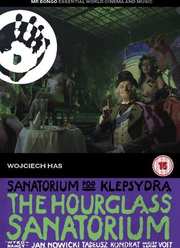
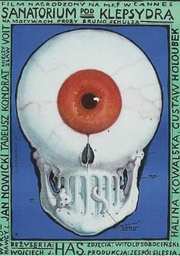
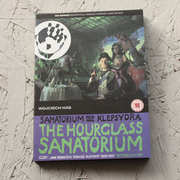
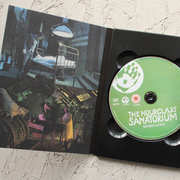
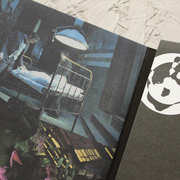
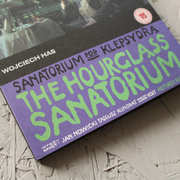
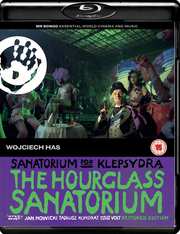

































Your Opinions and Comments
Be the first to post a comment!